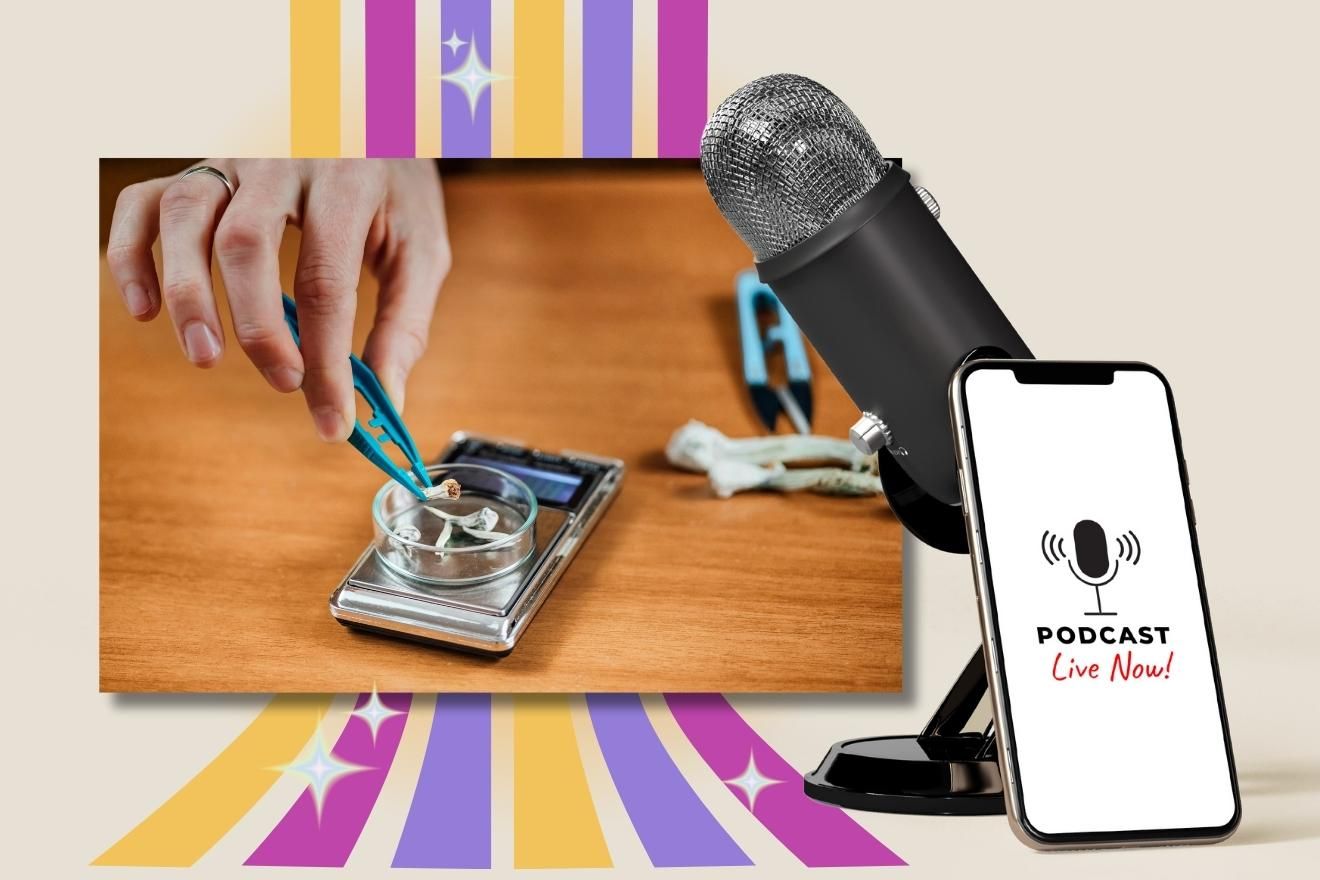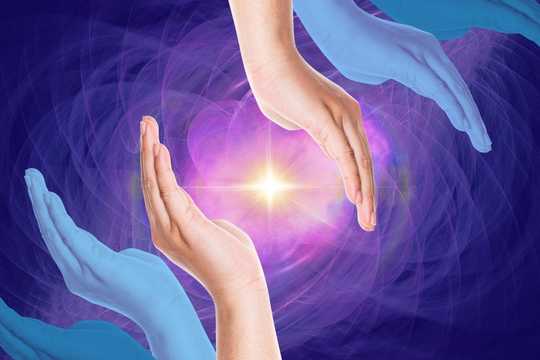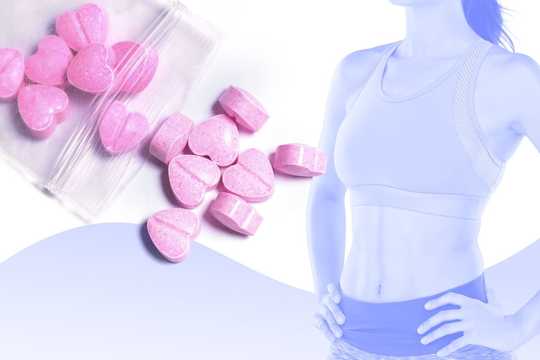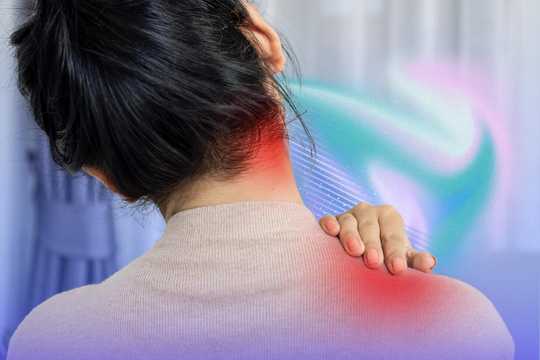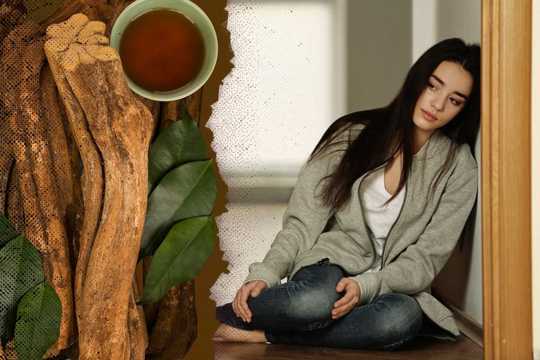Microdosing is a practice that involves taking tiny, sub-perceptual doses of psychedelic substances like LSD or psilocybin (the active compound in magic mushrooms).
These doses are typically far below the threshold for a full-blown psychedelic trip. This means users do not experience hallucinations or altered perceptions. Instead, the effects of microdosing are often described as subtle, enhancing creativity, mood, focus, and overall well-being.
Microdosers claim they experience various benefits such as increased productivity, creativity, and a reduction in symptoms related to depression and anxiety. Some users report enhanced problem-solving abilities and improved emotional regulation.
It’s important to note that the scientific evidence supporting these claims is still in its infancy. There have been some observational studies and anecdotal reports suggesting positive effects of microdosing. That said, controlled clinical trials with larger sample sizes are needed to establish the safety and efficacy of microdosing for various purposes.
One challenge in studying microdosing is the lack of standardized dosing protocols and the subjective nature of the reported effects. Effects can vary widely from person to person, and the placebo effect may play a significant role.
Learn more about The Placebo Effect and Microdosing
The long-term safety of microdosing is not well understood; potential risks or adverse effects are not yet fully documented. However, as interest in microdosing continues to grow, ongoing research will provide more clarity on its potential benefits and risks.
1. Psychiatry & Psychotherapy Podcast
— Episode #176: Microdosing LSD & Psilocybin: The Future of Psychiatry or Placebo?
Dr. Browning and Dr. Puder cover the history and background of microdosing, and then focus on psychedelic microdosing for mental health. They discuss the effects on mood, anxiety, and depression, as well as acute effects on creativity, cognitive performance, and perception.
The podcast explores various mechanisms of action, including the possibility of a placebo effect underlying the reported benefits.
“The idea of psychedelics interacting with the placebo effect is intriguing, especially considering the placebo effect is a neurobiological mechanism in and of itself. In a paper discussed recently in the social anxiety episode (Hjorth et al., 2021), two groups received SSRIs, where one group was told they would be receiving an SSRI. Participants who believed they were taking an SSRI showed greater improvements and also increased striatal dopamine activity. In fact, the increase in striatal dopamine from the placebo effect has been shown to correlate with clinical improvement in Parkinsons symptoms (de la Fuente-Fernández and Stoessl, 2002). The placebo effect is also thought to modulate orbitofrontal and ventromedial prefrontal cortical connectivity with the nucleus accumbens and other reward-related circuitry (Wager and Atlas, 2015). Psychedelics are thought to preferentially increase plasticity in the cortex, particularly in the PFC (de Vos et al., 2021). Therefore, although it’s somewhat of a stretch, psychedelics might potentiate the placebo effect.”
Listen now on the following platforms:
2. Psychedelics Today
— Episode #380: Microdosing, Talking to Physicians About Psychedelics, and Nurses as the Scalability Solution
This podcast episode about microdosing is an interview with the author and board-certified psychiatric-mental health nurse practitioner C. J. Spotswood, PMHNP-BC. He is currently enrolled in CIIS’ Psychedelic-Assisted Therapies and Research certificate program, and peer reviewer for Psychedelic Support’s Understanding Psilocybin course.
Spotswood discusses his initial exposure to psychedelics and how his first patient promptly inquired about microdosing. He explains why he changed his perspective on microdosing and the motivations behind writing his book.
Spotswood shares his enthusiasm for specific microdosing studies. He discusses terms like “treatment-resistant depression,” “risk reduction,” and “flight nurses.” Furthermore, he highlights Irving Kirsch’s research, which revealed issues in the scientific rigor of research studies.
He emphasizes the necessity for physicians to acquire sufficient knowledge about psychedelics to relate to their patients effectively and stresses the significance of group therapy. Lastly, he suggests that employing nurses to their full capacity might offer a solution to the growing challenges in the field of psychedelic therapy and its scalability.
Straight from Spotwood
A notable quote from the episode – Spotswood talks about his first time hearing a patient talk about microdosing:
“My first patient I ever saw as a new clinician, like, literally my first patient: I come in and I’m starting to talk to them for the first interview and I got to the point and I’m asking them: ‘Where are we going, what do you need?’ and they said to me, ‘Do you know anything about microdosing?’ …I said to them, I go, ‘Yeah, I know a little bit.’ …So I asked her what she knew, and she knew quite a bit. And she goes, ‘What do you know?’ and I kind of just said to her: ‘I don’t really know how to put this, [but I] wrote a book on it and it’s going to be coming out next year.’ …It reinforced my feeling [that] I’m doing the right thing: this career suicide I’ve thought of, going into working with psychedelics and being open and talking about it, hearing my first patients talking about it — it’s got to be serendipity.”
Listen now on the following platforms:
3. The Tim Ferriss Show
— Episode #377: Psychedelics — Microdosing, Mind-Enhancing Methods, and More
Tim Ferriss shares a panel discussion that he moderated at the Milken Institute’s Global Conference in 2019. Participants include the following:
- Matthew Johnson — Principal Investigator, Johns Hopkins Psychedelic Research Unit
- Ayelet Waldman — Author, A Really Good Day: How Microdosing Made a Mega Difference in My Mood, My Marriage, and My Life
- Robin Carhart-Harris — Head of Psychedelic Research, Centre for Psychedelic Research, Department of Brain Sciences, Imperial College London
- Christian Angermayer — Founder, Apeiron Investment Group and ATAI Life Sciences
Topics include microdosing, the science, investing opportunities, anecdotal personal experiences and the legalization of psychedelics.
Ayelet Waldman shares her initial experiences with microdosing and its effect on her depression:
“Over the course of the next period that I was taking LSD microdoses, it wasn’t like every day was a really good day, but many days were really good days. My set point of depression dramatically changed. My productivity — I wasn’t in it for mind enhancement, for productivity enhancement — but my productivity changed dramatically…I became convinced at the end of this experiment, that this was a drug that had all the therapeutic benefits that are promised by SSRIs, but I often say that if those anti-depressant commercials showed a fat person lying in bed not having sex, that would be a more accurate assessment of their effects than a happy lady skipping through a field of flowers. And I was a happy lady skipping through a field of flowers.”
Listen now on the following platforms:
4. Inside Mental Health: A Psych Central Podcast
—Episode: Microdosing with Netflix and FX Star Theo Rossi
In this podcast episode about microdosing, Gabe Howard interviews Theo Rossi, who opens up about his true personality. Rossi is the star of the popular Netflix limited series “True Story” opposite Kevin Hart and Wesley Snipes. He is famous for his roles as Shades in “Luke Cage” and Juice in “Sons of Anarchy”.
As a father of two, Rossi shares the challenges he experienced during his childhood. He advocates for microdosing to gain self-awareness and improve his mental well-being.
Rossi talks about his initial experiences with microdosing small doses of psilocybin:
“I met with a bunch of different mycologists, spoke with tons of people who had experienced microdosing. And I tried it. I tried it the first time, and I didn’t do it again for almost six months. And the reason I did it is because I didn’t, because it had such a profound effect on me and an impact on me that I had to process it for almost six or seven months. What it did was it taught me that everything that I was fearing was not real to me, that it was just me creating them. So that was just the first thing that came to me. And then what it was, was it was like a teacher whenever I was experiencing it, it was like I was going to class with myself and I was just learning more and more and more and more importantly. It was opening up pathways of creation to me that were impossible for me to tap in what I was currently living my life with.”
Listen now on the following platforms:
5. Psychedelic Spotlight
— Episode #51: Moms on Mushrooms — Bringing Moms Together Through Microdosing With Tracey Tee
In this podcast episode about microdosing, Dennis Walker from the Mycopreneur Podcast converses with Tracey Tee, an accomplished entrepreneur and the Founder of Moms On Mushrooms.
Tracey Tee openly shared her experiences with microdosing on this episode of the Psychedelic Spotlight podcast. Specifically, the practice helped her through a challenging part of her life when she suddenly lost a successful business.
Her revelation about the positive impact of microdosing resonated with many moms in her community who were curious about its potential benefits. This led Tracey to establish the platform, Moms On Mushrooms. It’s dedicated to “bringing moms together through the sacred practice of plant medicine for a shared journey of personal growth + healing”.
Today, Moms On Mushrooms has grown into a nationwide community. It plays a pivotal role in reducing the stigma associated with the connection between motherhood and mushrooms.
